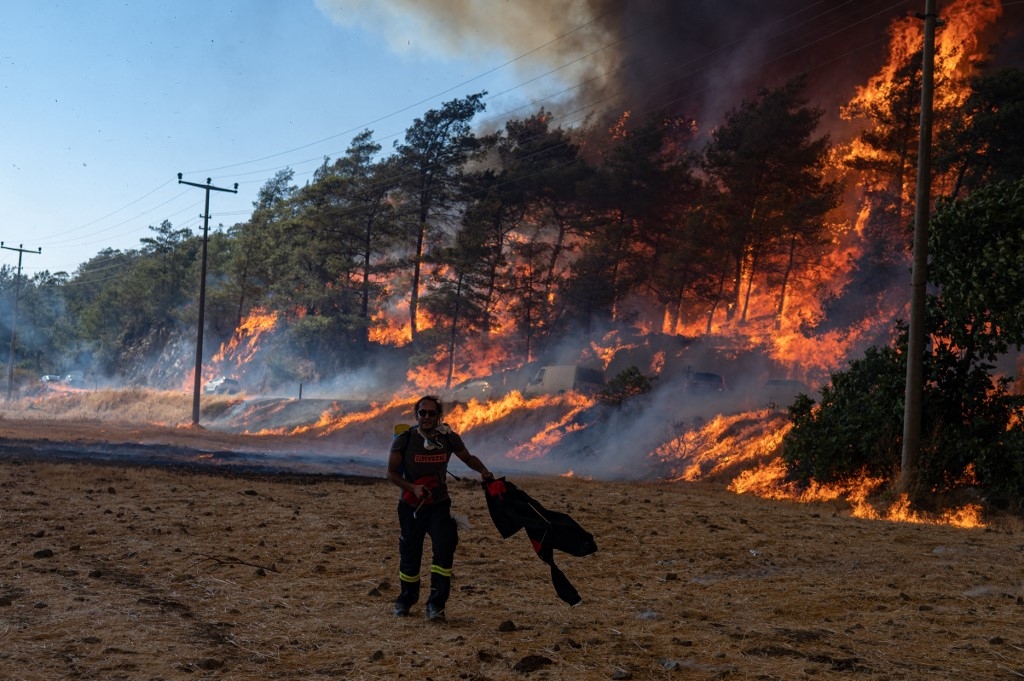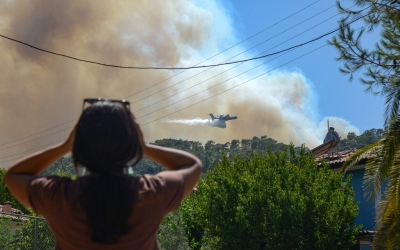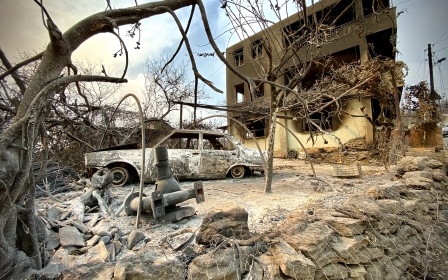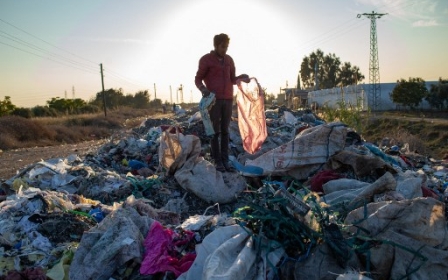Turkey wildfires: Israel's help to combat blazes refused, Israeli embassy says

Israel had offered help to combat Turkey’s wildfires that ravaged hundreds of hectares of forests in 35 provinces but Turkish officials refused it, according to the Israeli Embassy in Ankara.
The embassy said in a statement on Tuesday that the Israeli officials met their Turkish counterparts a few days ago to discuss the wildfires and expressed their readiness to provide help.
“The Turkish officials [in return] said that the situation in the country was under control and thanked us,” the statement said. “Israel is ready to extend a helping hand if it is needed and requested.”
Turkish officials say they extinguished 129 out of 138 forest fires since 28 July, yet nine wildfires still continue to rage in four provinces, angering locals for delayed emergency assistance and inadequate air support.
The fires have killed at least eight people and wounded hundreds of others.
Last week, Ankara initially rejected help from Greece and the European Union, and only accepted offers from the countries that it sees as politically closer, such as Russia, Ukraine, Azerbaijan and Qatar.
Amid high public pressure, Turkish officials activated the European Union Civil Protection Mechanism, which directed two firefighter aeroplanes from Spain and one from Croatia to Turkey.
Turkey sent aeroplanes to help Israel fight wildfires in 2016, and then-Prime Minister Benjamin Netanyahu even posed in front of the aircraft to thank all the countries that sent help.
Turkey and Israel have been conducting talks to repair their downgraded relations through intelligence agencies since last year. While on paper, the two countries have had normal diplomatic ties since 2016, neither hosts the other's ambassador due to regular fallouts over Israel's treatment of Palestinians and holy sites in occupied Jerusalem.
In a first direct communication in years, Turkish President Recep Tayyip Erdogan called his Israeli counterpart Yitzak Hertzog last month to congratulate him on assuming office.
Middle East Eye propose une couverture et une analyse indépendantes et incomparables du Moyen-Orient, de l’Afrique du Nord et d’autres régions du monde. Pour en savoir plus sur la reprise de ce contenu et les frais qui s’appliquent, veuillez remplir ce formulaire [en anglais]. Pour en savoir plus sur MEE, cliquez ici [en anglais].





